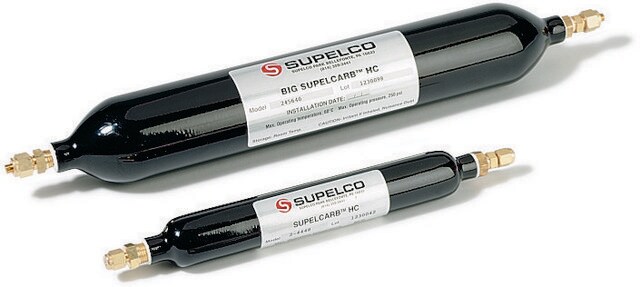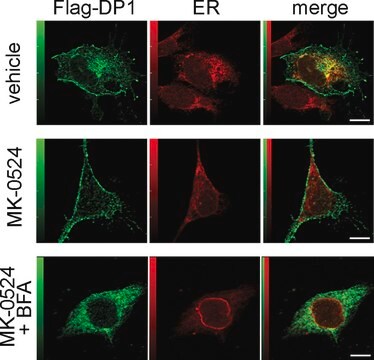MAB8702
Anti-Dengue Virus Type II Antibody, clone 3H5-1
clone 3H5-1, Chemicon®, from mouse
ログイン組織・契約価格を表示する
すべての画像(1)
About This Item
UNSPSCコード:
12352203
eCl@ss:
32160702
NACRES:
NA.41
クローン:
3H5-1, monoclonal
application:
IF
inhibition assay
inhibition assay
化学種の反応性:
human
テクニック:
immunofluorescence: suitable
inhibition assay: suitable (hemagglutination)
inhibition assay: suitable (hemagglutination)
citations:
16
おすすめの製品
由来生物
mouse
品質水準
抗体製品の状態
purified immunoglobulin
クローン
3H5-1, monoclonal
化学種の反応性
human
メーカー/製品名
Chemicon®
テクニック
immunofluorescence: suitable
inhibition assay: suitable (hemagglutination)
アイソタイプ
IgG1
輸送温度
wet ice
詳細
Dengue fever is an acute, mosquito-transmitted viral disease characterized by fever, headache, arthralgia (severe retro-orbital pain), myalgia, rash, nausea, and vomiting. Infections are caused by any of the four closely related, but antigenically distinct virus serotypes (DEN-1, DEN-2, DEN-3, and DEN-4). Infection with one of these serotypes does not provide cross-protective immunity, so persons living in a dengue-endemic area can have four dengue infections during their lifetimes. Dengue is primarily an urban disease of the tropics, and the viruses that cause it are maintained in a cycle that involves humans and Aedes aegypti, a domestic, day-biting mosquito that prefers to feed on humans. Although most dengue infections result in relatively mild illness, some can produce Dengue Hemorrhagic Fever (DHF) or dengue shock syndrome, with children being particularly at risk. Although epidemic outbreaks have been reported since 1779, the incidence has been increasing, with global, multiple serotype pandemics intensifying within the last 15 years. There is no specific antiviral therapy for dengue, but for both classical dengue and dengue hemorrhagic fever, symptomatic and supportive measures are effective. Important risk factors for DHF include the strain and serotype of the virus involved, as well as the age, immune status, and genetic predisposition of the patient.
特異性
Reacts with the Dengue type 2 virus.
免疫原
Dengue type 2 antigen (New Guinea C).
アプリケーション
Research Category
感染症
感染症
Research Sub Category
感染症-ウイルス
感染症-ウイルス
Recommended for use in an immunofluorescent assay. Also suitable for use in hemagglutination-inhibition tests and plaque-reduction assays.
IFA: 1:200-1:400.
Dilute with buffer pH 7.5-8.0 to desired working volumes. For extensive dilution, protein containing or other stabilizing medium should be used.
Final working dilutions must be determined by end user.
IFA: 1:200-1:400.
Dilute with buffer pH 7.5-8.0 to desired working volumes. For extensive dilution, protein containing or other stabilizing medium should be used.
Final working dilutions must be determined by end user.
This Anti-Dengue Virus Type II Antibody, clone 3H5-1 is validated for use in HI, IF for the detection of Dengue Virus Type II.
物理的形状
Protein G Purified
Format: Purified
Protein G Purified immunoglobulin. Liquid in 0.02 M PB, 0.25 M NaCl, pH = 7.6 with 0.1% Na Azide as a preservative
保管および安定性
Maintain at 2°C to 8°C in undiluted aliquots for up to 12 months after date of receipt.
アナリシスノート
Control
Dengue positive patient sample
Dengue positive patient sample
その他情報
Concentration: Please refer to the Certificate of Analysis for the lot-specific concentration.
法的情報
CHEMICON is a registered trademark of Merck KGaA, Darmstadt, Germany
免責事項
Unless otherwise stated in our catalog or other company documentation accompanying the product(s), our products are intended for research use only and are not to be used for any other purpose, which includes but is not limited to, unauthorized commercial uses, in vitro diagnostic uses, ex vivo or in vivo therapeutic uses or any type of consumption or application to humans or animals.
保管分類コード
10 - Combustible liquids
WGK
WGK 2
引火点(°F)
Not applicable
引火点(℃)
Not applicable
適用法令
試験研究用途を考慮した関連法令を主に挙げております。化学物質以外については、一部の情報のみ提供しています。 製品を安全かつ合法的に使用することは、使用者の義務です。最新情報により修正される場合があります。WEBの反映には時間を要することがあるため、適宜SDSをご参照ください。
Jan Code
MAB8702:
試験成績書(COA)
製品のロット番号・バッチ番号を入力して、試験成績書(COA) を検索できます。ロット番号・バッチ番号は、製品ラベルに「Lot」または「Batch」に続いて記載されています。
Zhi-Shan Zhang et al.
Molecular medicine reports, 11(2), 1009-1016 (2014-11-06)
There is currently no effective vaccine to prevent dengue infection, despite the existence of multiple studies on potential methods of immunization. The aim of the present study was to explore the effect of DNA and/or recombinant protein on levels of
Jorge I Castañeda-Sánchez et al.
Intervirology, 59(1), 8-19 (2016-06-20)
The innate immune response is remarkably important for controlling infections. Information about the participation of antimicrobial peptides (AMPs) in response to dengue virus (DENV) is scarce. The aim of this study was to examine the AMP response to DENV-2 in
Characterization of the early events in dengue virus cell entry by biochemical assays and single-virus tracking.
van der Schaar, HM; Rust, MJ; Waarts, BL; van der Ende-Metselaar, H; Kuhn, RJ; Wilschut et al.
Journal of virology null
Sialic acid expression in the mosquito Aedes aegypti and its possible role in dengue virus-vector interactions.
Cime-Castillo, J; Delannoy, P; Mendoza-Hernandez, G; Monroy-Martinez, V; Harduin-Lepers et al.
BioMed Research International null
Leticia Franco et al.
PLoS neglected tropical diseases, 5(8), e1251-e1251 (2011-08-11)
Dengue virus (DENV) circulates in human and sylvatic cycles. Sylvatic strains are both ecologically and evolutionarily distinct from endemic viruses. Although sylvatic dengue cycles occur in West African countries and Malaysia, only a few cases of mild human disease caused
ライフサイエンス、有機合成、材料科学、クロマトグラフィー、分析など、あらゆる分野の研究に経験のあるメンバーがおります。.
製品に関するお問い合わせはこちら(テクニカルサービス)





